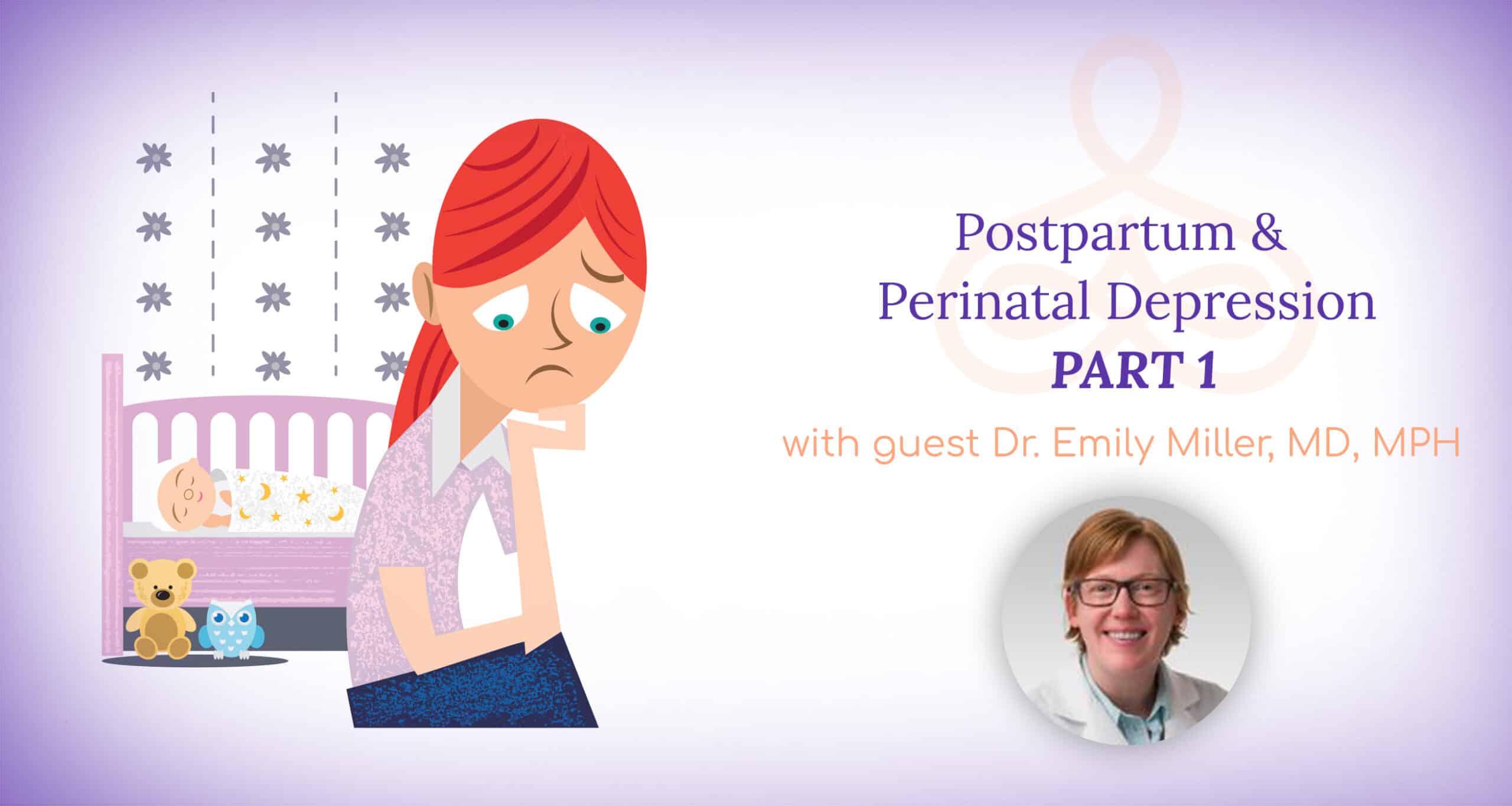On the Healthful Woman podcast, Dr. Nathan Fox sat down with Dr. Emily Miller to discuss the importance of mental health and its connection to other areas of medicine. Dr. Miller is a specialist in postpartum and perinatal depression, having been involved in clinical research and advocacy for the condition. Her shared patient story gives us an insight into why all doctors should be learning about and acknowledging mental health, starting in medical school and continuing into practice.
What Are Perinatal and Postpartum Depression?
“Perinatal” describes the time frame from the moment of conception to the birth of a child. “Postpartum” is the time immediately after birth, continuing for several months or up to a year. Postpartum depression is the more commonly known illness. Milder symptoms are sometimes referred to as “baby blues.” Dr. Miller is not fond of this term, however, because it minimizes the severe effects this mental health condition has on pregnant and postpartum women.
Perinatal and postpartum depression can cause extreme feelings of sadness and loneliness, severe mood swings, and anxiety during or after pregnancy. Risk factors include a personal or family history of mental health disorders, relationship conflict, lack of social support, and pregnancy complications. Many of these risk factors can be seen in a patient story shared by Dr. Miller.
Patient Experience
Dr. Miller describes a life-changing experience she had in the late ‘90s-early 2000s caring for a pregnant patient who had perinatally acquired HIV. This means that HIV was acquired from her mother, and she was born with it. This patient had also lost her mom to AIDS when she was only three years old and since her father had a substance use disorder, the patient grew up in foster care. In her 20s, the patient wanted to start a family and went off her HIV medications to safely conceive. Dr. Miller met her at this time when the patient came into their HIV clinic with PCP pneumonia.
In combination with a mental health provider and health care provider, the patient got back on her medication and the pregnancy went smoothly until 24 weeks. Around this time, the patient went into a perinatal depressive episode and her pneumonia reoccurred. After developing ARDS, the patient went into preterm labor and delivered a healthy baby boy, but sadly passed away three weeks postpartum. Dr. Miller reflects that “if we had been able to reach this person’s major depressive episode and effectively treat her, I’m just convinced she would still be with us today.”
The Importance of Mental Health in Pregnancy
Dr. Miller is a strong advocate for mental health in all aspects of medicine. She says, “if we, as maternal-fetal medicine physicians, do not incorporate mental health into our practice, then we really can’t call ourselves [maternal fetal] medicine physicians.” If a patient’s depression is not cared for and managed, then the physical treatments they are receiving will not have much impact. Dr. Fox elaborates on this by discussing pregnancy and medication.
Many people think they will hurt their baby by taking medication in pregnancy, but it can potentially be more harmful to go off medications for anxiety or depression. Depression is a serious medical illness. For pregnant women, the effects of untreated depression on them and the baby can be significant. It’s important to comprehensively treat depression while caring for the pregnancy.
Comprehensive Care at Carnegie Women’s Health
Our expert team of physicians is committed to compassionate care that focuses on women’s overall well-being. We offer a variety of GYN and family planning services to help you have a smooth pregnancy at every stage, including the postpartum period. If you have been experiencing symptoms of postpartum depression or have any questions or concerns, please contact our office today.

